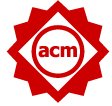Understanding Community Smells Variability: A Statistical Approach SEIS
SEIS
Fri 28 May 2021 22:40 - 22:55 at Blended Sessions Room 1 - 4.1.1. Open Source: General Issues
Social debt has been defined as the presence in a project of costly sub-optimal organizational conditions, e.g., non-cohesive development communities whose members have communication or coordination issues. Community smells are indicators of such sub-optimal organizational structures and may well lead to social debt. Recently, several studies analyzed actors affecting the presence of community smells and their harmfulness, or proposed refactoring strategies to mitigate them. However, to the best of our knowledge, there is still a limited understanding of the factors influencing the variability of community smells, namely how they increase/decrease in magnitude over time. In this paper, we aim at conducting the first statistical experimentation on the matter, by analyzing how a set of 40 socio-technical factors, e.g., turnover or communicability, impact the variability of four community smells on a dataset composed of 60 open-source communities. The results of the study reveal that communicability is, in most cases, important to reduce the risk of an increase of community smell instances, while broadening the collaboration network does not always have a positive effect.